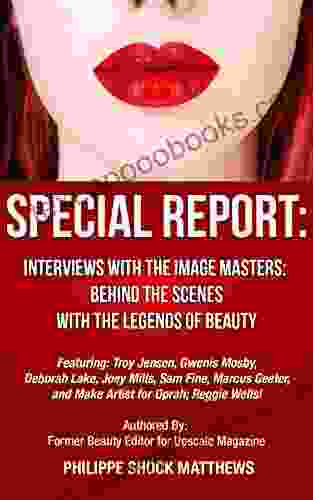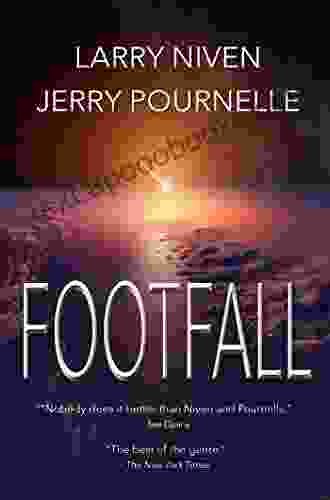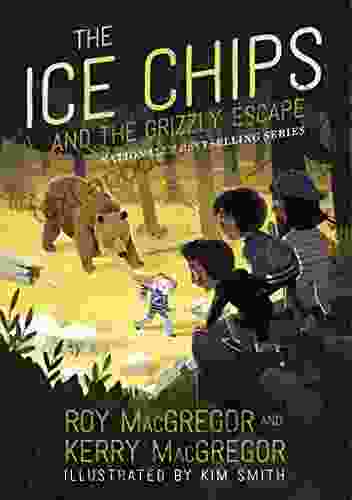Jazz Whiteness and Racialized Listening: Living Existentialism

4.5 out of 5
| Language | : | English |
| File size | : | 2167 KB |
| Text-to-Speech | : | Enabled |
| Screen Reader | : | Supported |
| Enhanced typesetting | : | Enabled |
| Word Wise | : | Enabled |
| Print length | : | 305 pages |
Jazz is a uniquely American art form that has its roots in the African American community. However, the history of jazz is also marked by a complex and often fraught relationship with whiteness.
In her book, Jazz Whiteness and Racialized Listening: Living Existentialism, Susan McClary argues that jazz has been shaped by a "racialized listening" that privileges whiteness and marginalizes blackness. This racialized listening is evident in the ways that jazz has been commodified, appropriated by white musicians, and stereotyped as "primitive" or "savage."
McClary draws on the work of existential philosophers such as Jean-Paul Sartre and Albert Camus to develop a theory of "living existentialism" that she argues is central to jazz. Living existentialism is a way of being in the world that is characterized by a deep sense of freedom and responsibility. It is a way of living that is not afraid to confront the challenges and contradictions of life, and that is always striving to create something new and meaningful.
McClary argues that jazz musicians have always embodied the spirit of living existentialism. They have faced racism and discrimination, but they have never stopped creating music that is both beautiful and challenging. They have found freedom and expression in a world that often tries to silence them.
Jazz Whiteness and Racialized Listening is a groundbreaking work that challenges our understanding of jazz and its relationship to race. It is a must-read for anyone who is interested in the history of jazz, the philosophy of existentialism, or the complex relationship between race and culture.
Table of Contents
- Chapter 1: The Problem of Whiteness
- Chapter 2: Racialized Listening
- Chapter 3: Living Existentialism
- Chapter 4: Jazz and the Future
Chapter 1: The Problem of Whiteness
In the first chapter of her book, McClary argues that whiteness is a problem for jazz. She traces the history of jazz from its origins in the African American community to its appropriation by white musicians in the early 20th century. She shows how whiteness has been used to marginalize and exclude black musicians, and how it has shaped the way that jazz is listened to and understood.
McClary also argues that whiteness is a problem for existentialism. She argues that existentialism has been used to justify white supremacy and to deny the experiences of black people. She shows how existentialist philosophers have often ignored or dismissed the role of race in human existence.
Chapter 2: Racialized Listening
In the second chapter of her book, McClary develops a theory of racialized listening. She argues that racialized listening is a way of listening that privileges whiteness and marginalizes blackness. This racialized listening is evident in the ways that jazz has been commodified, appropriated by white musicians, and stereotyped as "primitive" or "savage."
McClary argues that racialized listening is a product of white supremacy. She shows how white supremacy has created a system of racial hierarchy that privileges whiteness and devalues blackness. This system of racial hierarchy is reflected in the ways that jazz is listened to and understood.
Chapter 3: Living Existentialism
In the third chapter of her book, McClary argues that living existentialism is a way of being in the world that is characterized by a deep sense of freedom and responsibility. It is a way of living that is not afraid to confront the challenges and contradictions of life, and that is always striving to create something new and meaningful.
McClary argues that jazz musicians have always embodied the spirit of living existentialism. They have faced racism and discrimination, but they have never stopped creating music that is both beautiful and challenging. They have found freedom and expression in a world that often tries to silence them.
Chapter 4: Jazz and the Future
In the fourth and final chapter of her book, McClary explores the future of jazz. She argues that jazz is a vital art form that has the power to challenge racism and white supremacy. She calls for a new generation of jazz musicians to embrace the spirit of living existentialism and to create music that is both beautiful and challenging.
McClary's book is a timely and important contribution to the literature on jazz, race, and existentialism. It is a must-read for anyone who is interested in the future of jazz and the fight against racism.
About the Author
Susan McClary is a musicologist and cultural critic. She is the author of several books, including Feminine Endings: Music, Gender, and Sexuality and Conventional Wisdom: The Content of Musical Form.
Praise for Jazz Whiteness and Racialized Listening
"A groundbreaking work that challenges our understanding of jazz and its relationship to race. It is a must-read for anyone who is interested in the history of jazz, the philosophy of existentialism, or the complex relationship between race and culture." -Robin D.G. Kelley, author of Freedom Dreams: The Black Radical Imagination
"A powerful and provocative book that will force us to rethink the history of jazz and its relationship to whiteness. McClary's insights are essential for understanding the complex and often fraught relationship between race and culture in America." -Angela Y. Davis, author of Are Prisons Obsolete?
4.5 out of 5
| Language | : | English |
| File size | : | 2167 KB |
| Text-to-Speech | : | Enabled |
| Screen Reader | : | Supported |
| Enhanced typesetting | : | Enabled |
| Word Wise | : | Enabled |
| Print length | : | 305 pages |
Do you want to contribute by writing guest posts on this blog?
Please contact us and send us a resume of previous articles that you have written.
 Book
Book Novel
Novel Page
Page Chapter
Chapter Text
Text Story
Story Genre
Genre Reader
Reader Library
Library Paperback
Paperback E-book
E-book Magazine
Magazine Newspaper
Newspaper Paragraph
Paragraph Sentence
Sentence Bookmark
Bookmark Shelf
Shelf Glossary
Glossary Bibliography
Bibliography Foreword
Foreword Preface
Preface Synopsis
Synopsis Annotation
Annotation Footnote
Footnote Manuscript
Manuscript Scroll
Scroll Codex
Codex Tome
Tome Bestseller
Bestseller Classics
Classics Library card
Library card Narrative
Narrative Biography
Biography Autobiography
Autobiography Memoir
Memoir Reference
Reference Encyclopedia
Encyclopedia Svetlana Zabelina
Svetlana Zabelina R Shep Melnick
R Shep Melnick Lewis Macadams
Lewis Macadams Wolfram Lacher
Wolfram Lacher Kugane Maruyama
Kugane Maruyama Richard W Soderberg
Richard W Soderberg Kristen Ashley
Kristen Ashley Peter Navarro
Peter Navarro Paul Tremblay
Paul Tremblay Marty Groover
Marty Groover Tamie Dearen
Tamie Dearen Salwa El Shawan Castelo Branco
Salwa El Shawan Castelo Branco Tracey Enerson Wood
Tracey Enerson Wood Kirk Mcnair
Kirk Mcnair Sunanda J Chatterjee
Sunanda J Chatterjee Larry John Spector
Larry John Spector Paul Miller
Paul Miller William Stallings
William Stallings Osnat Ben Ami
Osnat Ben Ami Lanny J Davis
Lanny J Davis
Light bulbAdvertise smarter! Our strategic ad space ensures maximum exposure. Reserve your spot today!

 Russell MitchellUnlock the Secrets of the English Language with "Learn English Alphabets And...
Russell MitchellUnlock the Secrets of the English Language with "Learn English Alphabets And... Jonathan HayesFollow ·6.6k
Jonathan HayesFollow ·6.6k Jedidiah HayesFollow ·5.1k
Jedidiah HayesFollow ·5.1k Roald DahlFollow ·4k
Roald DahlFollow ·4k Thomas HardyFollow ·14.1k
Thomas HardyFollow ·14.1k Wesley ReedFollow ·3k
Wesley ReedFollow ·3k Rudyard KiplingFollow ·2.5k
Rudyard KiplingFollow ·2.5k Nikolai GogolFollow ·11k
Nikolai GogolFollow ·11k Felix CarterFollow ·17.3k
Felix CarterFollow ·17.3k

 Henry Wadsworth Longfellow
Henry Wadsworth LongfellowUnleash the Blues Spirit: Dive into "Blues Guitar Songs...
The captivating allure of the blues has...

 Ernesto Sabato
Ernesto SabatoBehind the Scenes with the Legends of Beauty
Unveiling the...

 Neal Ward
Neal WardUnleash the Infernal Power of "Lucifer's Hammer" by Larry...
A Cosmic Catastrophe that Will Ignite Your...

 Wesley Reed
Wesley ReedPetra Pecado: A Gripping and Unforgettable Journey...
Embark on a Captivating Adventure ...

 Phil Foster
Phil FosterStep into a World of Wonders: Footfall by Larry Niven - A...
Prologue: In the vast expanse of the...
4.5 out of 5
| Language | : | English |
| File size | : | 2167 KB |
| Text-to-Speech | : | Enabled |
| Screen Reader | : | Supported |
| Enhanced typesetting | : | Enabled |
| Word Wise | : | Enabled |
| Print length | : | 305 pages |












